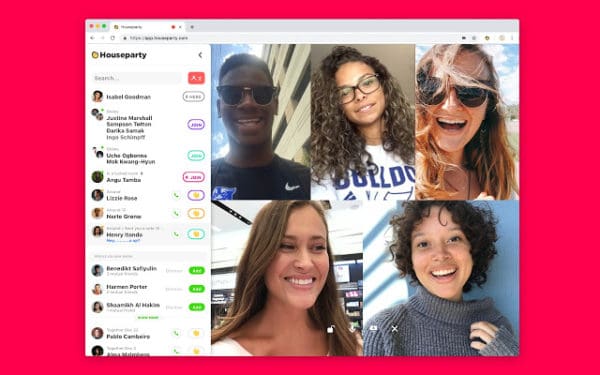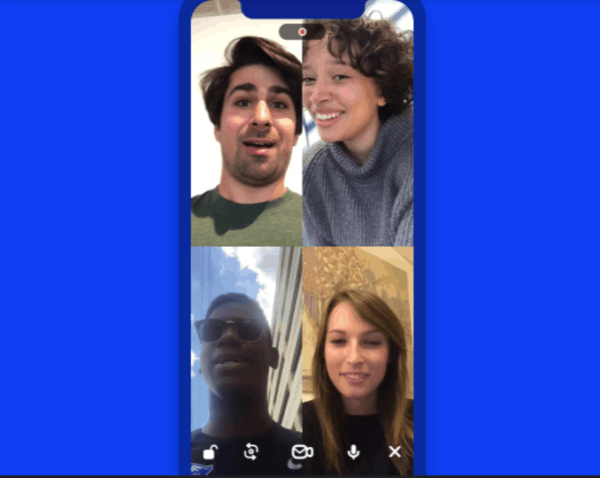Is Houseparty here to stay?

 It’s no surprise that video chat platforms like Zoom, Skype and FaceTime are seeing a surge in use during the COVID-19 era, but there could be more to their rise than meets the eye, says the CEO of Houseparty, who claims that the pandemic is helping shift the way people interact through social media.
It’s no surprise that video chat platforms like Zoom, Skype and FaceTime are seeing a surge in use during the COVID-19 era, but there could be more to their rise than meets the eye, says the CEO of Houseparty, who claims that the pandemic is helping shift the way people interact through social media.
The COVID-19 era has put even more attention on platforms like Facebook and Twitter not just for their ability to either help or hinder the push to control the pandemic through the information (or misinformation) they spread, but also when it comes to bare usage numbers.
Both Facebook and Twitter have seen huge upsurges in eyeballs glued to screens, a healthy sign for these companies which are nonetheless expected to struggle in terms of advertising dollars with the COVID-19 crisis shuttering businesses in a range of industries.
”In the short term, [companies like Facebook] and Google will suffer losses because of their reliance on small businesses that advertise,” said Jasmine Enberg of eMarketer to MarketWatch last week. “[Small businesses] will pull back ad spend. In the longer term (full year), they are in a much better position than smaller media companies for advertising.”
In comparison with other Big Tech names like Amazon and Microsoft who have vaulted ahead in recent weeks, both Facebook and Twitter have had trouble gaining back the ground lost over the market crash of mid-February to mid-March.
That’s to say nothing about Zoom Video Communications, which has rocketed up the charts, climbing from
$68 per share at the start of the year to now above $150 per share, as usage keep climbing for the video chat and meeting platform.

But is there room for another in this crowded space?
Houseparty, which was launched in 2016 and bills itself as a more informal, social chat version of video chat compared to the more meeting-focused iterations such as Zoom, has seen a huge uptick in usage. Last week, a New Zealand news service reported the app went from being ranked 1143rd overall in the country on March 17 to the number one slot a week later.
But CEO Sima Sistani says the rise of Houseparty signals something deeper about how social media is changing.
“We’re really grateful for and humbled by our ability to keep people connected in such a crazy time, and certainly we've seen usage increase and we've been working around the clock to make sure that the app stays stable and it's reliable for people who are using it to connect with their loved ones,” Sistani said to CNBC Friday.
“Houseparty is really about that spontaneous togetherness. You predefine your friend group and when you have a free moment you just open the app and it notifies your friends that you're there,” she said.
Houseparty is owned by video game company Epic Games, makers of the Fortnite franchise that made gaming-as-a-service the movement it is today, and Sistani sees synergies in the way Houseparty and games like Fortnite are defining tech-enabled connectedness.
“I think that it's really interesting that both Epic Games and House Party are really a third space, a place for people to be together in a more participatory interactive way than what a lot of us have gotten used to in terms of just passive scrolling through newsfeeds,” Sistani said.
“We are really mission-aligned in terms of what we want that future of social to be like,” she said. “Social media over the last decade has really evolved into algorithmic news feeds which are engagement for engagement’s sake, and Houseparty is really offering a more playful, empathetic way for people to stay together that fills them up in a way that you just can't get from traditional social media.”

